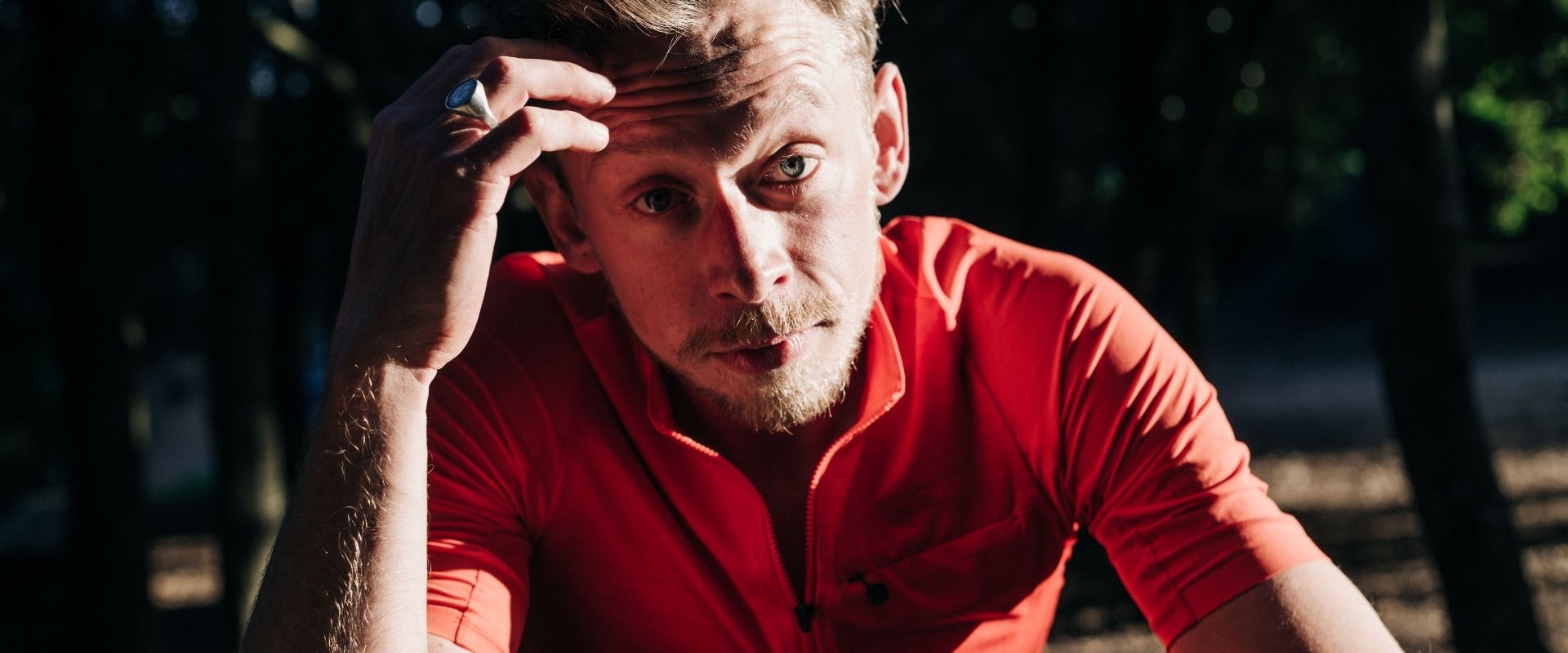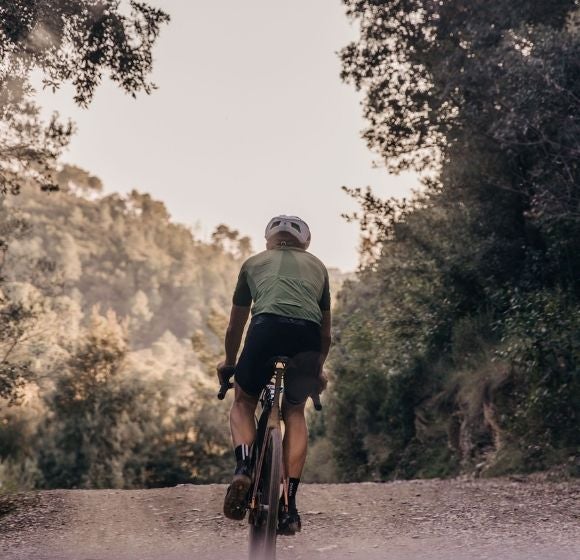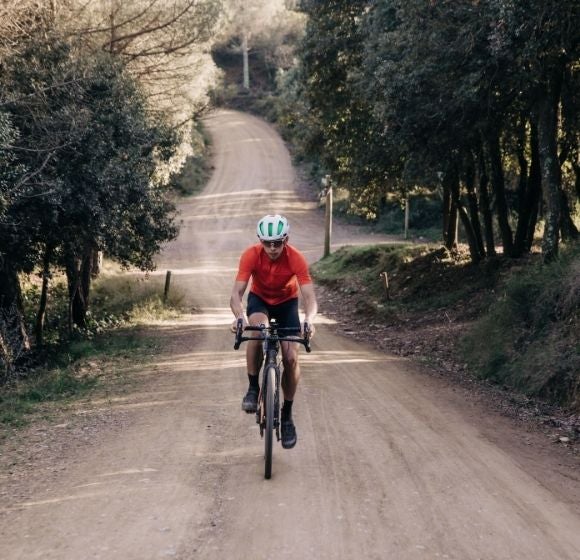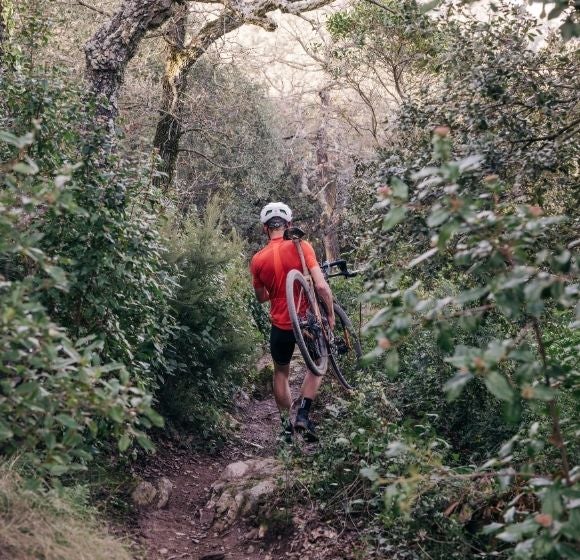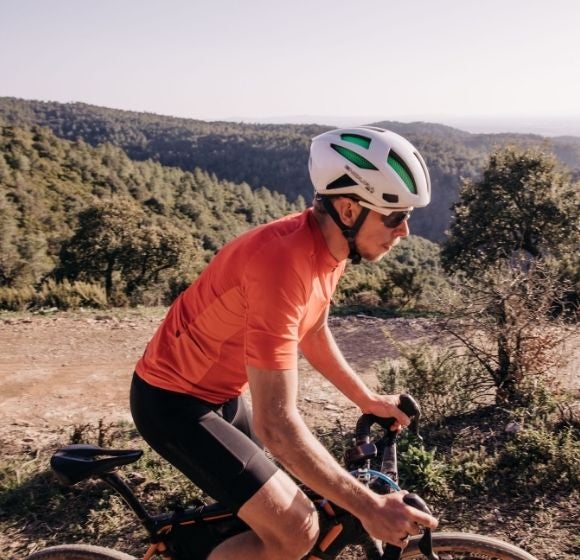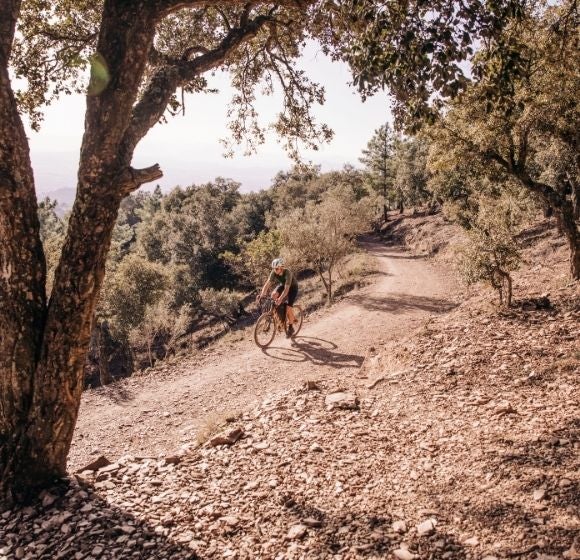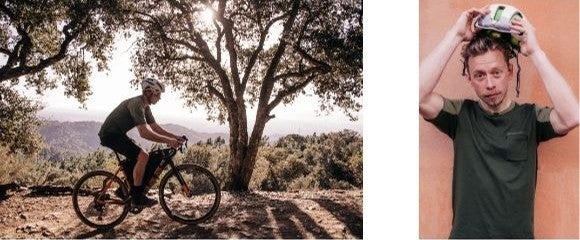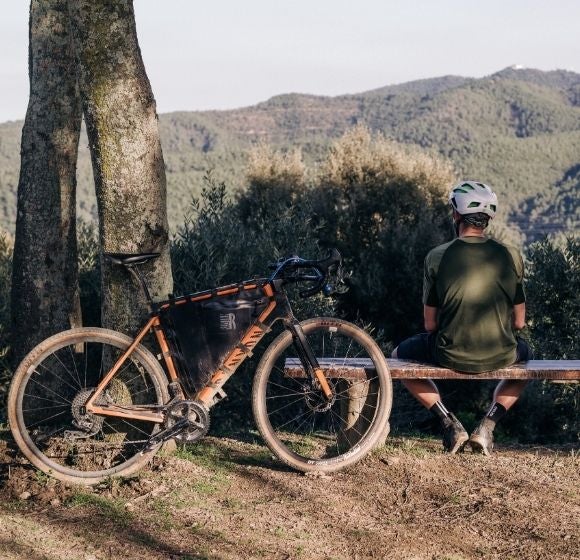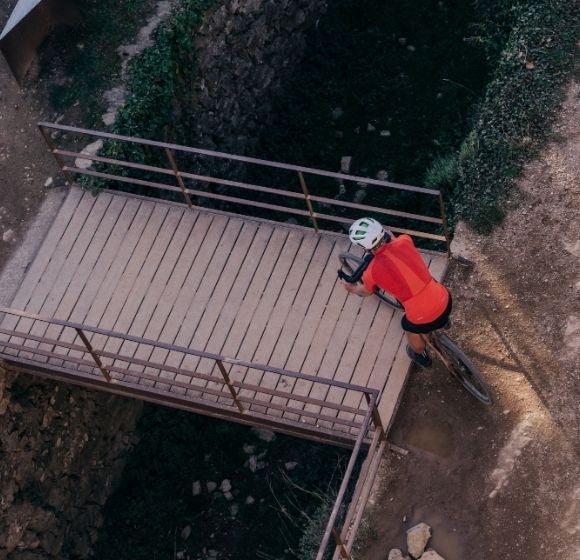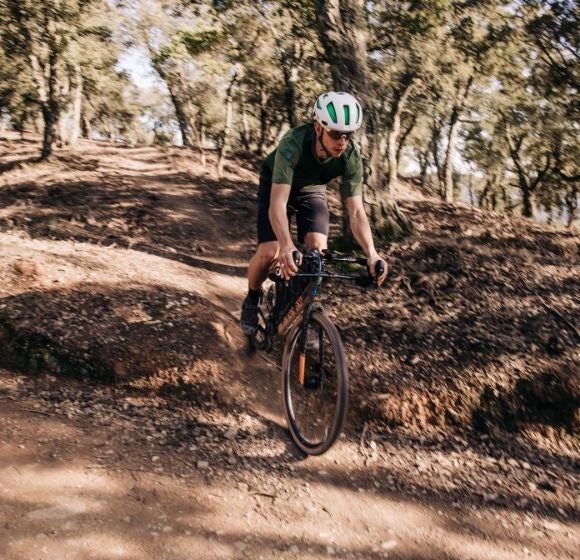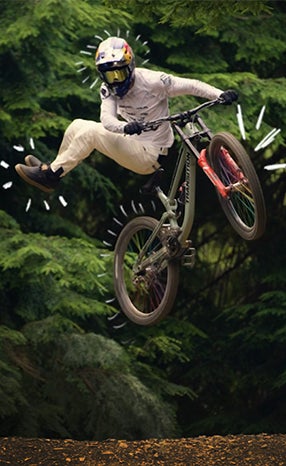From his apartment in the Catalan cycling mecca of Girona, James Hayden casts his mind back to one summer evening in Scotland in 2019. He was competing in the Highland Trail 550, a gruelling off-road ultra-endurance bike-packing race across the most rugged terrain in the UK.
A two-time winner of the Transcontinental Race, the most well-known unsupported ultra-cycling road race, this was Hayden’s first foray into off-road racing. He admits that for all his ultra-racing pedigree, he soon realised that he “didn’t have a damn clue.”
With 12 hours riding to the finish, he punctured. He repaired his tube, remounted his bike, pedalled 20 metres down the road, and broke his shifter. He dismounted and dismantled his machine, becoming increasingly frustrated as the rain drops and the midges began to descend through the Highland twilight.
“This was one of these moments when everything was going wrong,” he recalls. “It wasn’t the end of the world, let’s get some perspective, but it was going from bad to worse. In these moments, I would normally lose my s***. But for some reason this absolute calm came over me.
“Now, when something goes wrong, I don’t see it as something bad. I see it as a test. And an opportunity for me to pass it.”
“I thought to myself: this moment is a test. This is an opportunity to pass this test. And from that moment on it wasn’t a problem. I dealt with it, got the bike fixed, got riding again.
“Now, when something goes wrong, I don’t see it as something bad. I see it as a test. And an opportunity for me to pass it.”
Ultra-endurance races present riders with the ultimate test. To finish, let alone win, demands a superhuman feat of cycling hundreds of kilometres day after day, with minimal sleep and no support. In Hayden’s well thought out words, he describes it thus: “Competitors race over unimaginable distances, battling terrain and elements as much as each other.”
James Hayden has seen his fair share of terrain and elements. The Transcontinental Race that made his name is 4000 kilometres long and, as the name suggests, traverses the European continent. Besides four compulsory checkpoints, which often reduce even the best riders to heaving their bikes up un-rideable gravel roads, the route is entirely down to competitors.
Then there’s the Silk Road Mountain Race, a 1700km odyssey through the sparsely populated mountainous back-country of Kyrgyzstan, where in 2018 he fended off an attempted mugging by two armed men on horseback. In both events, outside assistance is strictly forbidden.
As an ultra-endurance racer, the biggest obstacle can be yourself. There’s what Hayden describes as an “extremely, extremely delicate balancing act” between pushing yourself hard enough to competitive, but not pushing so hard that your body cannot sustain the effort. It was a lesson he learned the hard way; in his debut Transcontinental he rode flat out to arrive first at the first check point at Mont Ventoux but his body soon began to fall apart and he scratched from the race in Montenegro with a debilitating case of Shermer’s Neck, where the neck muscles can no longer support the head.
“I learnt a hard lesson, a lot of humility. It forced me to go away and learn a lot.”
The distinction between adventure and race often comes down to the competitor’s own state of mind. The biggest battle can often be with that voice in your head that tells you to stop, to seek shelter and to rest. It’s your inner monkey brain, hell bent on survival and ignorant to the logic of your conscious mind.
“If you stop, you’re alone. No-one’s there to give you a cuddle. So that survival mechanism is not necessarily logically correct,” Hayden says. “Those negative thoughts, if you let them creep in, it can be like opening the floodgates. You’re not going to be able to close them. You’re done.”
Hayden discovered his talent for cycling when, not long after becoming hooked on road riding around his hometown of Royston, he entered an evening time trial. Up against the skinsuits and disc wheels brigade, he entered on his road bike and won. As much as the winning feeling became addictive, cycling offered a meditative escape for a man in his early twenties who, following the loss of his father, was flunking his course at university and had lost sense of his life’s direction.
“Recently I was reading this scientific research on the effect of looking at the horizon. It’s now scientifically shown that if you look off into the long distance and gaze at that, it will reduce stress levels and signals in the body. That is essentially what you’re doing when you’re cycling.”
“I changed direction from obsessive and destructive in a negative way to obsessive in a perhaps more positive way,” Hayden, now 30, recalls.
“Recently I was reading this scientific research on the effect of looking at the horizon. It’s now scientifically shown that if you look off into the long distance and gaze at that, it will reduce stress levels and signals in the body. That is essentially what you’re doing when you’re cycling.”
A couple of unsuccessful seasons spent at the back of the bunch in the UK’s domestic racing scene led to his first attempt at the Transcontinental Race. After his head-sagging self-destruction in 2015, he returned to the race and finished fourth the following year. The year after that, he went back and won. Then, to prove it wasn’t a fluke, he went back in 2018 and won again.
“That winter, after the fourth event, I was a bit lost. Even before I started the race, I knew that if I won again, I probably wasn’t going back,” he says.
He stumbled into his future when he entered the Italy Divide in 2019, a 1200km off-road race up the remote, rocky spine of central Italy. Now, he says, off-road events are his sole focus.
“You’re more exposed to the elements, the opportunities for resupply are fewer, the equipment you need is different. The tactics you need to use are different. That’s just in Italy. Then you go to somewhere like Kyrgyzstan and the way you have to manage yourself, deal with the environment, nutrition and these things is more difficult as well.
“It’s so much richer off road. You’re out in nature, there’s no-one around you, it’s peaceful, silent, it’s purer. And it’s tougher, which is quite addictive to me.”
It's easy to forget that a successful attempt on an ultra-endurance race begins months in advance with planning and logistics. Picking a route, choosing equipment, devising a plan for nutrition and rest. Take Hayden’s first attempt at Further, an ultra-endurance race amongst the French Pyrenees devised by long-time TCR photographer Camille McMillan. The race comprises a series of compulsory sectors of Pyrenean pathways suitable for riding, walking or hike-a-bike, with curfews enforced to minimise the risks of sleep deprivation.
“I had identified, based on my expected average speed – which was based on Emma Pooley’s average the previous year when she won it – that sector 12 would be the crucial sector in the race, because if you didn’t get a hustle on from the start, you’d hit the curfew,” Hayden explains.
“You had to ride 36 hours flat out, and if one person got through that sector and nobody else did, they would go on to win the race without much question.”
He and his hardtail mountain bike made it through. Only one other rider managed it too: former professional road cyclist Christian Meier and his gravel bike. The two sat together for dinner at a hotel while waiting for the curfew of the next sector to be lifted. Hayden went on to win.
However the singular defining characteristic of ultra-endurance racing is that the experience is solo. Hayden recalls reaching the final checkpoint of his third TCR at a hotel in Romania. He knew he would win but, after the race’s founder Mike Hall had been killed earlier that year while competing in a race in Australia, he asked himself a question.
“It’s in those moments that you look around and there’s no-one else there and it’s on your shoulders to deal with that, that’s when you find out who you are.”
“I was 700km from the finish and I asked myself, what would Mike do at this point? The answer was that he’d ride it flat out. It wasn’t even a decision. That was just what was happening. I rode that final 700km in one hit, to the finish. And in my career, there have been moments like that when you find out what you’re capable of, what you want to achieve.
“It’s in those moments that you look around and there’s no-one else there and it’s on your shoulders to deal with that, that’s when you find out who you are.”
It comes as no surprise that Hayden has been able to take the recent global upheaval in his stride. When an injury on his sit-bones demanded six weeks of no exercise, he worked 10-hour days to convert a van into a campervan. When global travel restrictions denied him a return to the Silk Road Mountain Race, he jumped in the van and competed across Europe instead. With Brexit about to kick in, he and his wife moved to Spain.
“I find a way to make things work and through cycling I’ve learned to have confidence in that in a way that I didn’t have before,” he says. “The racing I’ve done, and everything to make it possible, has allowed me to develop and mature and be more aware of these qualities. To tap into the best version of myself that I can be.
“It’s important that people who read this don’t think that they have to enter a 4000km bike race to learn who they are, because no they don’t. You just need to find a way to test yourself.”
© 2021 ENDURA
